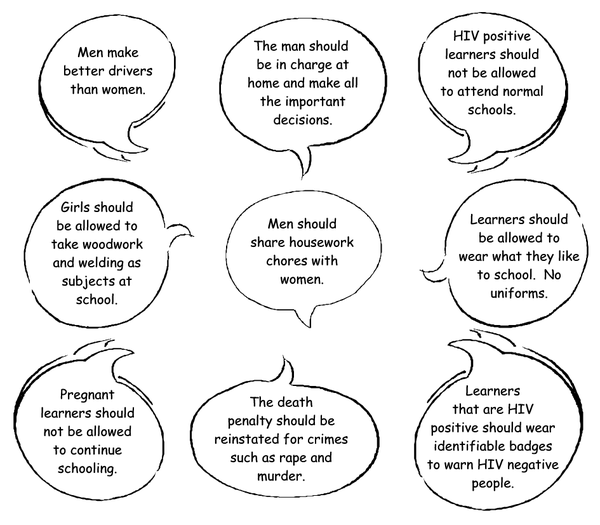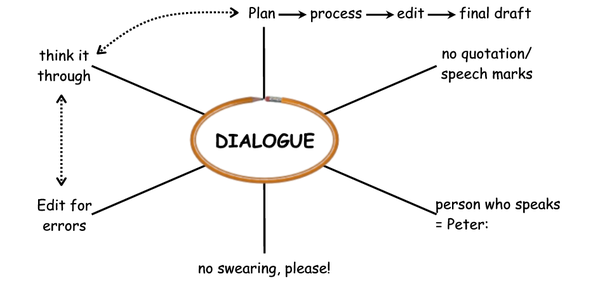| << Chapter < Page | Chapter >> Page > |
SLANGUAGE
Almost everyone uses slang on some occasions.Slang introduces many new words into the language by combining old words into new meanings or sometimes even an entirely new word.
| to be spaced out | to barf | grass / pot | to ‘split’ |
| have a hang-up | to be pooped | something is cool | the fuzz |
| a rip-off | to be stoned | bread (not to eat) | grub |
| TV | belly-button | ||
| hot-dog | once in a blue moon | ||
| boss | to lie low |
| LO 1.6 | LO 6.4.2 | LO 6.6 |
| LO 6.1.2 | |
| LO 6.1.3 |
TABOO LANGUAGE
Socially unacceptable language
This is the use of expletives / use of “filthy” language.
How would you explain the meaning of “filthy” language to someone who did not understand the term?
In all societies there are certain words that are considered taboo. Taboo is a Tongan word which means: acts that are forbidden or to be avoided , or reference to these acts. Some words are taboo because they refer to religious customs.
In our culture, taboo words or socially unacceptable language can be defined as
Discussion
| LO 6.4.2 |
OPINIONS, CONFLICT AND COMPROMISE
| Agreestrongly | Agree;not strongly | Neutral | Disagree,not strongly | Disagreestrongly1 |

You will realise that these are very emotive issues and everybody will have an opinion based on their beliefs.
RESPECT
Your partner cannot be persuaded to change his/her mind. What do you do?

What is conflict?
What is compromise?
| LO 1.5 | LO 5.1.7 |

| LO 4.1.2 |
So often – when you are ‘difficult’ (according to your parents), they wonder if their children were not swopped in the hospital after birth … !But how about this? An untitled poem from a Calvin and Hobbes cartoon book conveys the message that the writer’s parents are aliens from outer space and living on earth in disguise!

Notification Switch
Would you like to follow the 'English home language grade 7' conversation and receive update notifications?